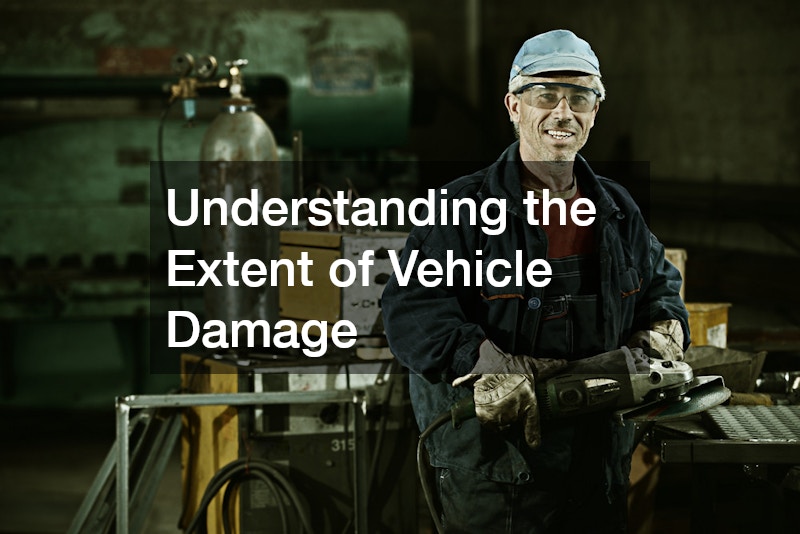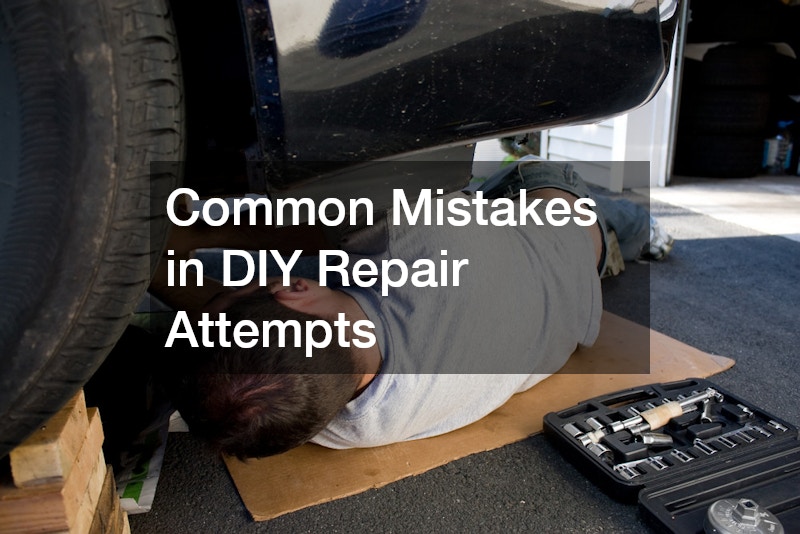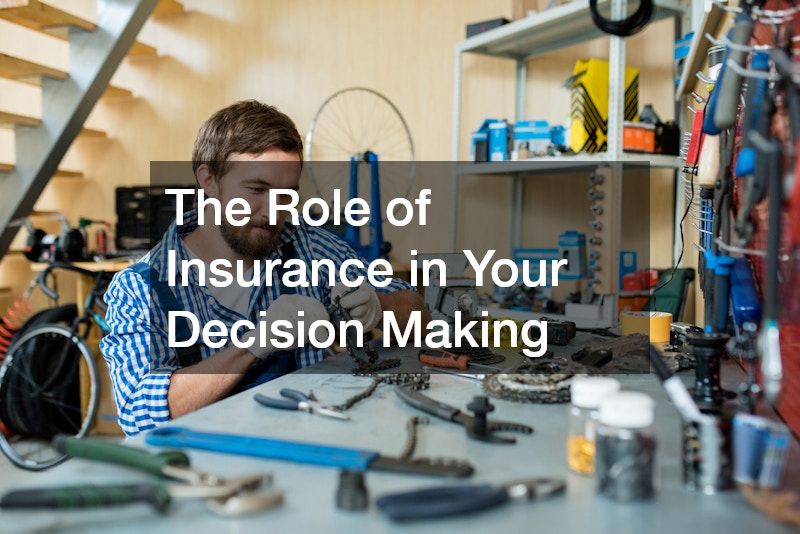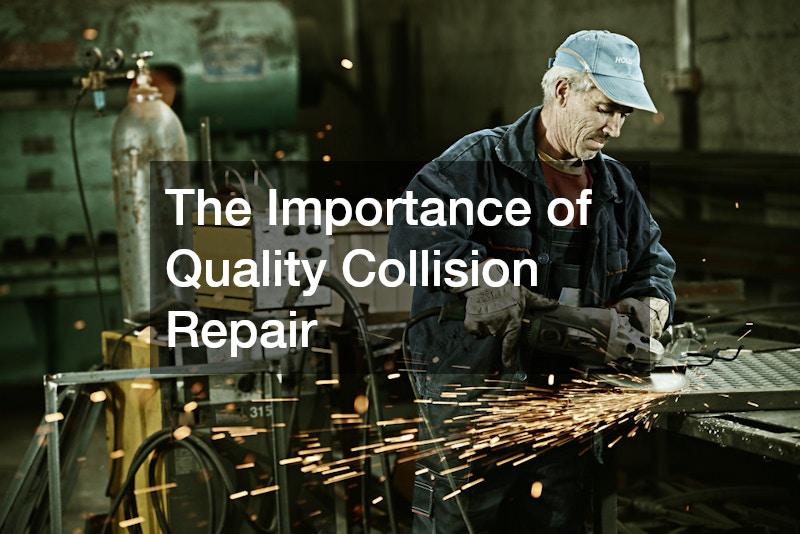
After suffering a collision, many drivers wonder whether to hire a mechanic for a detailed inspection. Determining if your vehicle is worth repairing involves weighing repair costs against its current market value. Before making a final decision, consult reputable professionals to avoid costly mistakes down the road. Understanding repair estimates and potential hidden damage is essential after a serious accident. Choosing to hire a mechanic can often reveal problems you might otherwise overlook.
When injuries occur in a crash, your first priority should be seeking medical attention and legal guidance from a personal injury lawyer or a car accident attorney. Beyond mechanical concerns, you may have damages related to medical bills, pain and suffering, or property losses. A qualified attorney can help you navigate insurance claims and ensure your rights are protected. Discussing the extent of physical and emotional injuries with a lawyer can complement your vehicle repair decision. Their expertise can also influence whether repairing your car remains financially viable.
Understanding the Extent of Vehicle Damage
Before evaluating repair costs, it is critical to perform a thorough damage assessment administered by a trained professional. Many serious issues like frame misalignment or hidden leaks only become apparent under close examination. When you hire a mechanic with proper diagnostic tools, you gain clarity on both visible and internal damage. A comprehensive inspection report prevents unpleasant surprises once the repair process begins. Armed with accurate information, you can decide if repairs remain practical.
Minor cosmetic scuffs and scratches may seem insignificant, but they can indicate deeper underlying issues. Oil leaks or unexplained engine noises often correlate with major structural damage. Ensuring you fully understand the condition of struts, suspension, and chassis alignment protects you from driving hazards. Professional evaluations sometimes reveal repair needs more extensive than initially thought. A detailed damage report makes the ultimate decision more informed and reliable.
The Value of Professional Expertise
Choosing to hire a mechanic with years of hands-on experience often leads to higher confidence in repair quality. Mechanics streamline diagnostics and use specialized equipment to detect problems invisible to untrained eyes. Their skillset can save you time and money by pinpointing the most efficient repair methods. Additionally, experienced technicians draw on past collision cases to anticipate potential pitfalls. Relying on qualified professionals reduces the likelihood of future breakdowns.
Beyond mechanical repairs, well-qualified shops also maintain detailed documentation of service history. This record proves invaluable when negotiating with insurance adjusters or future buyers. Transparent documentation showcases the quality of work performed and parts replaced. Many shops use genuine manufacturer parts to preserve vehicle integrity and performance. Highlighting a documented repair history enhances resale value significantly.
Common Mistakes in DIY Repair Attempts
After a collision, some drivers try repair without realizing they should hire a mechanic for proper fixes. Attempting to fix serious post-collision damage without proper training can lead to incomplete or unsafe repairs. DIY efforts may fail to address structural issues or complex electrical system damage. Drivers sometimes underestimate the quality and precision required to restore critical safety components correctly. Recognizing these risks encourages vehicle owners to seek professional intervention rather than guessing repairs.
Shoddy fixes can result in additional repairs and unexpected breakdowns on the road. Inadequate restoration might invalidate warranty coverage or compromise vehicle certification. Amateur repairs often overlook alignment tolerances and manufacturer specifications. A slight deviation in suspension geometry can dramatically affect driving stability. Professional workshops adhere to strict standards to guarantee roadworthy results.
Evaluating Repair Costs Versus Scrap Value
When weighing repair estimates against scrap offers, many owners choose to hire a mechanic to obtain accurate costs. If projected repair expenses far exceed the inherent vehicle worth, scrapping may become the sensible solution. Salvage yards provide offers based on metal, parts scarcity, and market demand. Assessing these figures against professional repair quotes clarifies which path saves more money. Engaging professionals for both estimates ensures fairness in evaluating your options.
Repair costs often include parts, labor, and potential extras discovered during the process. Unexpected complications like hidden frame damage can drive estimates higher than initial projections. Salvage assessments sometimes overlook intangible costs like downtime and rental expenses. Accurately calculating these overheads makes the final decision more transparent. Ultimately, balancing total outlay against eventual resale or junk value dictates the practical choice.
The Role of Insurance in Your Decision Making
Insurance companies often require documented repair estimates before approving compensation, so many drivers hire a mechanic for an official assessment. Insurance adjusters base payouts on estimated repair costs and pre-accident value, potentially leaving gaps if estimates differ. Having a professional report strengthens your negotiation position and reduces the risk of underpayment. Insurance policies vary widely, making due diligence essential before committing to any repair or scrap. Consult both your agent and your mechanic to verify coverage details thoroughly.
Comprehensive coverage sometimes deems a vehicle totaled when repair costs exceed a certain percentage of its market value. Your deductible, depreciation, and coverage limits all factor into the final payout calculation. Understanding these parameters helps you decide whether to proceed with repairs or accept a salvage settlement. A clear grasp of policy terms prevents surprises when the check arrives. Keeping thorough records expedites communication with insurers and repair providers alike.
Finding Reliable Auto Services in Your Area
Locating reputable technicians can be daunting, which leads many car owners to hire a mechanic based on online reviews and personal referrals. Trustworthy shops demonstrate transparent pricing, licensure, and industry certifications that inspire confidence in their workmanship. Visiting potential providers to inspect their facilities and equipment reveals whether they can handle complex repairs. Speaking directly with technicians about experience and parts sourcing offers additional assurance. Ultimately, selecting the right service provider lays the foundation for a successful repair project.
Local auto services that prioritize customer satisfaction often offer warranties on parts and labor, ensuring you receive fair value. Professional shops invest in ongoing training to stay current with evolving vehicle technologies and diagnostic tools. Furthermore, they maintain relationships with parts suppliers to access original and aftermarket components as needed. Opting for certified providers protects against substandard work and recurring breakdowns. A strong network of accredited shops fosters greater peace of mind post-accident.
The Importance of Quality Collision Repair
For drivers concerned about vehicle integrity, hire a mechanic skilled in structural repair and precise panel alignment to restore safety standards. Quality collision repair goes beyond cosmetic fixes to ensure critical safety systems function as designed in future emergencies. Certified technicians use specialized equipment to measure and correct frame distortions accurately. Properly calibrated alignment tools guarantee predictable handling and minimize uneven tire wear. Prioritizing top-tier repair standards maintains both vehicle performance and occupant security.
Reputable auto body shops specialize in collision repair techniques that preserve manufacturer specifications and safety benchmarks. These establishments employ factory-approved procedures and materials to rebuild damaged components reliably. Many also offer paintless dent repair options for minor blemishes without requiring extensive repainting. Transparency in repair logs and part sourcing builds trust and substantiates quality claims. Choosing a certified body shop averts future issues resulting from inferior workmanship.
When Local Auto Repair Might Suffice
In cases of minor dents and surface scratches, some drivers choose to hire a mechanic for localized corrections instead of full-scale restoration. Small bumper repairs or paint touch-ups often cost significantly less and return vehicles to acceptable aesthetic condition. Quick fixes may extend the life of high-mileage cars without exceeding budget constraints. However, this route demands careful evaluation to avoid overlooking underlying damage. Consulting a skilled technician ensures even modest repairs maintain structural soundness.
Local auto repair shops frequently excel at addressing routine maintenance and minor collision aftermath efficiently. Their proximity allows faster service turnaround and easier follow-up visits for adjustments. Independent providers often nurture long-term customer relationships and offer personalized attention seldom found in large chains. Comparing service guarantees across nearby options helps you find the optimal balance between speed, cost, and craftsmanship. Small-scale shops remain valuable alternatives for less severe damage.
Considering the Aftermarket Parts Market
When evaluating repair costs, car owners often hire a mechanic to advise on aftermarket parts viability versus original equipment replacements. Aftermarket suppliers offer a range of components that often undercut official part pricing while maintaining quality standards. Your technician can verify compatibility, warranty coverage, and performance trade-offs before installation. Balancing cost savings against longevity and safety considerations determines the best purchase route. Transparent discussions about parts options foster budget-conscious decisions without compromising integrity.
Aftermarket parts selection covers everything from brake assemblies to body panels, offering flexibility for cost-sensitive repairs. Some reputable manufacturers provide warranties comparable to factory parts, enhancing consumer confidence. Nevertheless, mismatched or substandard components can undermine repair effectiveness and void existing warranties. Ensuring proper sourcing and fitment through professional guidance prevents such issues. Collaborative decisions between you and your mechanic maximize reliability and affordability.
Legal Implications and Seeking Professional Advice
Beyond mechanical considerations, serious collisions may involve legal dimensions where consulting a car accident attorney becomes essential. Attorneys specializing in crash litigation assess liability, negotiate with insurers, and protect your rights against unfair claims. Their expertise ensures you receive rightful compensation for damages, injuries, and loss of use. Legal counsel can also advise whether pursuing repair or scrapping suits your broader financial recovery goals. Early communication with a qualified advocate streamlines claim processes.
In cases involving disputed fault or severe bodily harm, engaging an accident attorney can influence the outcome of settlements. These lawyers coordinate with medical experts, investigators, and mechanics to build comprehensive evidence for your case. A strong legal strategy safeguards you from accepting inadequate offers from insurance companies. Furthermore, skilled attorneys often work on contingency, reducing upfront costs for clients. Having legal representation complements your repair choices by clarifying entitlements.
Alternatives: Selling to Used Auto Sales or Auctions
If repair costs soar beyond practicality, selling your vehicle to used auto sales or local auto auctions can recoup some expense. Both outlets buy salvageable vehicles, offering cash based on demand for parts and scrap metal. Auction prices fluctuate according to seasonality and buyer interest in specific models. Comparing offers from dealers and auction houses ensures you obtain the highest possible return. Engaging multiple buyers helps you avoid undervaluation in rushed transactions.
Alternatively, negotiating with a used car dealer may yield immediate purchase offers if your vehicle retains operational potential. Dealers often refurbish salvageable cars for resale in secondary markets or part-out operations. Clear documentation of damage and repair history enhances their confidence in part reusability. Some dealerships provide towing services and handle title transfers, simplifying the sale process. Choosing this avenue can deliver faster payment than waiting for auction results.
Making the Final Decision
Deciding whether to hire a mechanic for comprehensive repairs or scrap your vehicle ultimately depends on individual financial, safety, and usage priorities. Thorough cost assessments, risk evaluations, and professional consultations align expectations with realistic outcomes. Evaluate long-term ownership goals, such as resale potential or daily reliability, before settling on a path forward. Remember that timely decisions minimize ongoing storage fees and prevent further damage from leftover collision issues. Keeping an objective perspective helps you choose the option that best serves your circumstances.
Ultimately, balancing repair quality, legal considerations, and fiscal responsibility leads to a well-informed course of action. Whether you invest in expert collision repair or accept a salvage offer, transparency and documented evidence safeguard your interests. Prioritize safety above all, ensuring any restored vehicle meets manufacturer and regulatory standards. Open communication with your mechanic, insurer, and legal advisor fosters a coordinated approach to post-accident recovery. By following these guidelines, you can confidently proceed with either repairing or scrapping your car after an accident.
We hope that this guide was able to help you better understand your options after an accident and whether paying for repair or scrapping your car would be a better choice for you. Remember that every situation is unique, so it’s important to consult with local mechanics before making any final choices. Whatever you decide to do, we hope that you’re satisfied with your decision. Contact mechanics in your area today to learn more about your options. They’d be happy to answer any questions you may have.



